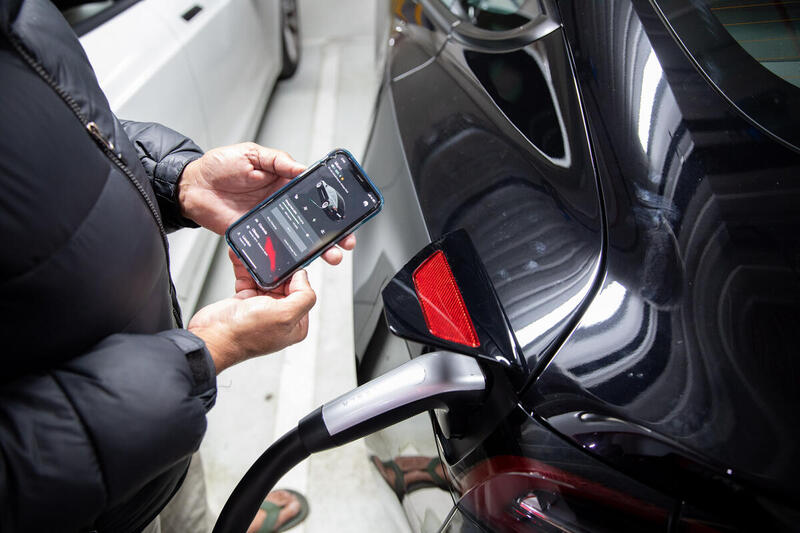A new Greenpeace report ranking global car makers on their climate credentials has revealed Australia’s top-selling carmaker Toyota is failing to achieve EV lift-off.

“I’ve been a strong advocate for action on climate change… and I think for years I’ve probably contributed to it because one thing I do love is a nice car… and I really felt like it was time I got away from doing that, and thought about a way that I could do my little bit to not contribute to the solution on the planet”
“The speed, the power is insane!”
The annual ranking evaluates the world’s 15 largest traditional automakers on their phase-out of Internal Combustion Engine (ICE) vehicles, supply chain decarbonisation, and resource reduction and efficiency. The report highlights how Australia’s most popular car brands are also some of the worst in terms of electrification and decarbonisation efforts.
Suzuki was bottom of the pile and did not sell a single zero-emission vehicle (ZEV) in 2022, nor has it set any targets for supply chain or materials decarbonisation.
Australia’s leading car brand Toyota crawled up from last year’s bottom-ranking position, but continues to stall when it comes to ZEV sales which represented a measly 0.24% of its total sales in 2022 — exceedingly low for a carmaker of its size.
The Australian Government is currently considering the introduction of a Fuel Efficiency Standard (FES) which would limit pollution from cars by creating a cap on emissions across a manufacturer’s overall sales. This would incentivise the supply of zero and low-emissions vehicles, ensuring everyday Australians have access to more affordable and less polluting cars.
Greenpeace Australia Pacific Campaigner Joe Rafalowicz said that Australia is one of the only developed nations without an emissions standard and is fast becoming a dumping ground for expensive, dirty vehicles.
“Australia is considered an ‘ICE hold-out market’ due to our lack of fuel efficiency standards, placing us in the same category as countries like Turkey and Vietnam.
“While Australians are calling out for access to more affordable electric vehicles, and petrol prices keep rising, Toyota continues to lobby for weak policy to protect its petrol-powered profits. This is clearly not in the interest of Australian consumers.
“A strong Fuel Efficiency Standard will benefit all Australians by slashing emissions, improving air quality, and reducing cost of living pressures. We call on Ministers Bowen and King to ensure a FES is implemented quickly and is robust enough to have a real impact on transport emissions, and to rule out loopholes for companies who have failed to invest in electric vehicles”
Yesterday, Greenpeace issued a statement in support of the decision by the High Court to scrap Victoria’s ‘ill-considered’ road user tax for electric vehicles.
In Question Time yesterday, Minister for Transport Catherine King was asked by MP for Kooyong Monique Ryan whether the government would rule out supercredits and other loopholes for car companies in its forthcoming fuel efficiency standard.
In an August statement, Minister for Climate Change and Energy Chris Bowen said that the strong response to his government’s FES consultation reinforces overwhelming support for the Government’s position that, “Australia needs fuel efficiency standards that make us competitive with other parts of the world for cleaner, cheaper-to-run cars.”
—ENDS—
Notes for editor:
- Read the full report and media briefing
- Toyota was penalised in the ranking due to a series of class-action lawsuits, known as “Dieselgate,” for emissions cheating that involves tampered devices displaying a lower nitrogen oxide emission level than the actual emissions.
- Toyota received a score of ‘D’ by InfluenceMap, due to its history of negative lobbying and active involvement in regressive trade associations.
- Greenpeace Australia Pacific’s submission to the Australian Government’s FES Consultation can be found here
